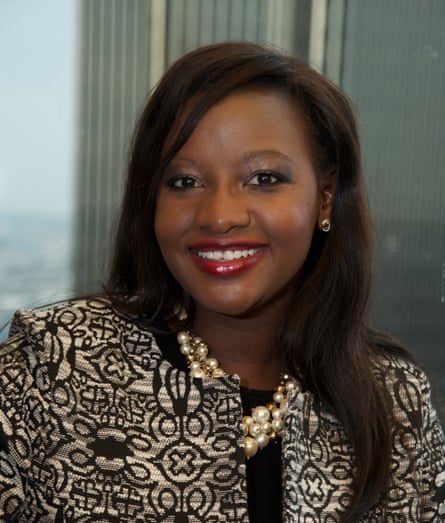In the ruthless world of executive headhunting, Cynthia Davis got used to being called “the black girl”. In the early 2000s, she recalls being one of only five women – and the only black employee – in a firm of 120 people in Leeds.
Even after a 20-year career that has involved working for big names and launching her own firm, BAME Recruitment, she laments the lack of progress. “It’s got better, but it hasn’t changed that much,” Davis said.
While Britain’s largest businesses are under mounting pressure to diversify their leadership teams, the headhunting companies in charge of filling those boardroom seats are still predominantly white.
The world’s leading executive headhunters are known as the SHREK firms: Spencer Stuart, Heidrick & Struggles, Russell Reynolds, Egon Zehnder and Korn Ferry. Between them, there are only six black leaders among 81 global head office executive and board members, according to figures compiled by the Guardian. Two – Egon Zehnder and Spencer Stuart – have no black leaders at all.
Davis, who has four black staff on her 11-strong team, said headhunting firms that struggled to recruit and promote their own black talent would battle to help corporate clients address boardroom imbalance. Black people make up about 3.3% of the population of England and Wales but in 2019 held only 1.5% of the 3.7m leadership positions across the UK’s wider public and private sectors, according to Business in the Community.
“If you don’t have anyone that represents the community that you’re trying to reach and engage with, how do you understand the issues?” Davis asked.

Some FTSE 100 firms are actively addressing this. In July, HSBC pledged to at least double the number of black staff in its upper echelons. The London-headquartered bank said it would work with headhunters to engage black and ethnically diverse candidates for leadership roles and improve their representation on shortlists for mid-career roles.
Last month, Lloyds Banking Group said it would increase the number of black staff in senior roles from 0.6% to at least 3% over the next four years. Reaching the target will mean recruiting 168 more black staff into senior roles by 2024. Lloyds pledged to include at least one candidate from a black, Asian or minority ethnic background on every executive director shortlist.
Any external headhunters involved will be under pressure to prove they have a contacts book of ethnically diverse talent.
Marcus Whyte, the chief executive of Zyna Search, a London-based headhunting firm focused on diverse recruitment, says industry incumbents have been poor at presenting black candidates to their clients. “Those candidates are there but these firms have virtually no history of dealing with black candidates, nor are they able to speak to their qualities as they have no relationship – unlike their white clients where they have deep and personal relationships.”
Arun Batra, a partner at the accountancy firm EY and the chief executive of the National Equality Standard, a Home Office-backed initiative that sets equality, diversity and inclusion criteria for businesses, says headhunters are aware of the problem and trying to improve their record. “From my conversations with headhunters and executive recruiters as part of our work on the national equality standard, they too are focused on … improving their diversity and are looking at their own infrastructure and initiatives,” he said.
The Black Lives Matter protests have also forced headhunters to pause and reflect.Russell Reynolds’ chief executive, Clarke Murphy, wrote an open letter last month to the executive search industry, urging more action to support black professionals.
He also joined members of the Association of Executive Search Consultants (AESC), which includes Heidrick & Struggles, Korn Ferry and Spencer Stuart, in signing a pledge to tackle racism and discrimination and support black staff, clients, and candidates. Egon Zehnder, which is not a member of the AESC, told the Guardian that the firm was also working to increase the diversity of its top leadership team.
“Clients come to us for counsel in these areas and expect that we practise what we preach,” Murphy said. “We have made a firm commitment and are taking action to measurably do better. It is the right thing to do and it is good business.”
Davis believes that all headhunters should publish their own diversity statistics, showing how many black staff and leaders they employ.
She pointed out that corporate clients also wield the power to push for change at the headhunters they hire. “If they cannot show how they increase diversity within their own organisation, they shouldn’t even be awarded the tenders that they’re pitching for.”
